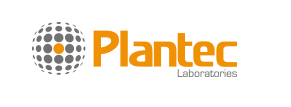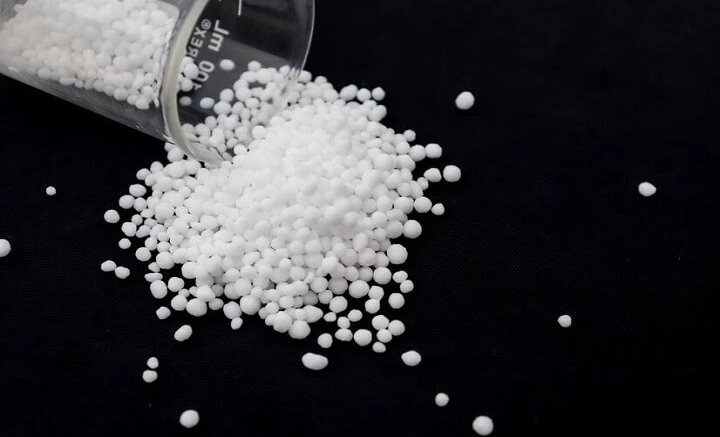Fertilizer Prices Are Increasing in Uruguay
Ministry of Agriculture published Ordinance No. 805, from June 9th, establishing the National Program for the Traceability of Pesticides and Related Products, with the aim of ensuring the complete traceability of pesticides and related products throughout the production and logistics chains. The Program aims to support inspection, food and environmental safety actions, as well as the prevention of fraud and risks to public health. (MAPA)
Ministry of Agriculture published the rejection of 15 ongoing pesticide registration requests and cancellation of 8 product registrations, in response to requests from applicant companies. (MAPA, 6/10/25)
Anvisa publishes the voluntary withdrawal of the toxicological evaluation of lufenuron 50 g/L EC from CHDS; carfentrazone-ethyl 400 g/kg WG and saflufenacil 700 g/kg WG from Solus. (Anvisa)
Renato Miranda is the new marketing director at Vittia. (Vittia)
Fertilizer deliveries to the market closed 1Q25 at 9.44 million tonnes, up 9.1% from 1Q24. The result was driven by expectations for a record harvest and good logistics, combined with the sector’s commitment to ensuring timely deliveries to farmers. State of Mato Grosso, the leader in deliveries, accounted for the largest volume in March of this year (24.9%), with 2.35 million tonnes. (ANDA)
Allterra announces Eduardo Navarro as its new CEO. (Alterra)
Changes in the global supply of phosphate fertilizers could result in shortages of the input for soybeans starting in September, according to Eduardo Monteiro, Mosaic’s country manager in Brazil. Phosphate prices are rising across the board, reflecting restrictions on exports from China. Many farmers are postponing purchases until the 2025/26 season, but prices are unlikely to decrease. (The Mosaic Company)
Agrogalaxy, which operates in the retail of ag inputs, recorded an adjusted net loss of US$ 27.49 million in the 1Q25, according to the balance sheet that the company released on June 9th, one month after the original deadline. In the same period of 2024, the company, which is under bankruptcy protection (similar to US’ Chapter 11), had a loss of US$ 44.92 million. (Agrogalaxy)
Movement in the State of Paraná ports increased 6.8%. In terms of imports, fertilizers stand out, reaching 3,395,960 tonnes from January to April of 2025. The volume is 7% higher than last year. “The constant growth of Paraná’s ports in recent years is the result of the rigorous performance of the technical team, both in logistics and throughout the entire operational process”, said the CEO of Portos do Paraná, Luiz Fernando Garcia. (Portos do Paraná)
ALTA, part of the Agrihold group, announces changes to its organizational structure. As of May of 2025, Daniel D’Andrea took over as the company’s CEO. Paulo Alves, who had been accumulating the roles of CEO of Agrihold and executive director of Alta, will now focus solely on the role of CEO. (Agrihold)
With the multiple resistance of crow’s foot (Eleusine indica) and ryegrass (Lolium multiflorum) to glyphosate and ACCase inhibitors, the weed control options have become even more restricted, increasing the need to use pre-emergent herbicides to reduce the selection pressure for plants resistant to post-emergence herbicides. (Center for Advanced Studies in Weed Science, UEM)
To align strategies to improve operational efficiency in fertilizer imports, the board of directors of the Port of Itaqui met with representatives of importers at the HQ of the Maranhão Port Administration Company. “Fertilizers are extremely important for the Port of Itaqui. 4 million tonnes of this cargo are handled each year. Therefore, together with the importers, we discussed how we can generate productivity growth for this sector and, consequently, become more competitive and efficient”, explained the port’s operations director, Carlos Roberto Frisoli. (Port of Itaqui)
Irregular spraying of pesticides on a farm in Paranhos, State of Mato Grosso do Sul, on the border with Paraguay, led the Public Prosecutor’s Office to sign an agreement with the person responsible for the property. The Conduct Adjustment Agreement was signed by the 1st Public Prosecutor’s Office of Sete Quedas and provides measures to minimize the damage caused by the aerial application of the poison, without a license and outside of safety regulations. (Public Prosecutor’s Office of MS)
Sindiveg advocates for the immediate application of the new Bioinputs Law. According to Lídia dos Santos, from FS Advocacia and a member of the entity’s legal team, the new legal framework was widely debated and meets the expectations of the sector, but the main difficulty lies in the implementation. “The challenge now is to turn things around. The law has been in effect since the end of last year and needs to be put into practice. Anything that does not depend on regulation should already be applied”, she stated. (Sindiveg; FS Advocacia)
Concerns about the quality of grape and silkworm crops, which are very important in the State of Paraná, were the focus of technical meeting held in Maringá at the Regional Council of Engineering and Agronomy. The meeting brought together representatives from the Paraná Agricultural Defense Agency, companies that operate in the pesticides segment, and researchers. The focus was on mitigating the effects of pesticide drift. (Adapar)
Yara has announced a partnership with Coocacer, a leading cooperative in high-quality coffee, to supply low-carbon fertilizers. (Yara Fertilizantes)
The President of the Legislative Assembly of the State of Mato Grosso, congressman Max Russi, received representatives from Potássio do Brasil for the presentation of the Potássio Autazes Project – an initiative aimed at the national production of potassium chloride. “The Potássio Autazes Project represents a strategic advance for Brazil, and especially for Mato Grosso, which is the heart of our agribusiness. Producing potassium on national soil ensures greater food security, less external dependence and greater competitiveness for farmers,” stated the deputy. (Potássio do Brasil)
The Fertilizer Purchasing Power Index for May of 2025 closed at 1.20, up 5% from the previous month. This change is the result of yet another period marked by falling commodity prices and rising fertilizer prices. The main increases observed were in Phosphate (4%), Simple Superphosphate (5%), Potassium Chloride (3%) and Urea (3%). (The Mosaic Company)
Anvisa approved the toxicological evaluation of a New Microbiological Product – active ingredient not yet registered in – based on Trichoderma asperelloide from Koppert. (Anvisa)
According to researcher Éder de Souza Martins, specialist at Embrapa’s Cerrado Biome Unit, from 2019 to 2024 Brazil used 10 million tonnes of remineralizers in agriculture. (Embrapa)
Fertilizer prices on a CFR (Cost and Freight) basis have increased in the past few days. The scenario reflects, in part, the increase in demand for fertilizers in Brazil. Traditionally, the months leading up to summer planting are marked by increased interest from Brazilian buyers. This period is crucial for defining production costs in the farms. “Therefore, the appreciation of urea, triple superphosphate and single superphosphate may exert even more pressure on the margins of farmers who still need to purchase inputs for the next season”, said market intelligence analyst Tomás Pernías. (StoneX Consultoria)
Judge Alessandra Gontijo do Amaral of the 19th Civil and Environmental Court of Goiânia approved, at the end of last month, the Bankruptcy Protection (similar to US’ Chapter 11) plan for AgroGalaxy, which has approximately US$ 900 million in debts. The conglomerate, founded in 2016, brings together several companies in the agricultural inputs sector and made the request in September of 2024. (State of Goiás’ Court)
According to a survey performed by the maritime agency Williams Brasil, the import of 8.66 million tonnes of fertilizers was scheduled from May 1st to June 2nd. Most of the cargo is expected to arrive through the port of Paranaguá, State of Paraná, totaling 2.166 million tonnes. This report considers shipments that are already anchored, those offshore awaiting docking, and those scheduled to arrive by July 29th, 2025. (Williams Brasil)
Corteva increases its focus on bioinputs to increase sales. Currently, bioinputs represent 7% to 8% of the company’s total revenue from crop protection sales. (Corteva)
ICL remains interested in M&A in Brazil, even after buying Fertiláqua, Produqímica and Nitro 1000, said Alfredo Kober, CEO for South America. “We are keeping an eye on new acquisitions… but we will also launch more products and want to better explore the portfolio we already have”. The bioinputs segment will receive “special attention”. (ICL)
In compliance with court decision, Anvisa approved the toxicological evaluation of diclosulam 840 g/kg WG from Agroallianz. (Anvisa)
Court of Justice of the State of Mato Grosso suspended the bankruptcy protection (similar to US’ Chapter 11) process of Grupo Safras, less than two weeks after it was approved. The preliminary decision by Judge Marilsen Andrade Addario cites irregularities such as the absence of mandatory documents, patrimonial “confusion”, the existence of companies without proven activity and suspicious financial transactions with investment funds. (TJ-MT)

Latin America
Grupa Azoty, a Polish fertilizer and chemical company, has announced a record shipment of 36,640 tonnes of fertilizer to be transported from the port of Police, Poland, to South America. This is the largest operation of this kind for the group. The fertilizer will be used in crops across the continent. Specific countries were not disclosed. (Grupa Azoty)
Adama has announced Francisco Lopez Aufranc as the Executive Vice President for Latin America. His goal is to expand customer engagement and drive new growth opportunities. (Adama Ltd.)
Forecasts for the Argentine agrochemical market in 2025 indicate a 3% to 5% drop in total value compared to the 2024. This is justified by the downward trend in the prices of local and imported inputs, associated with slower purchases by farmers. (Somera)
Argentine agricultural cooperative Agricultores Federados Argentinos invested US$ 6 million in the construction of the BioAFA plant in Ramallo, with 1,700 m² for the production of bioinputs, capable of supplying products for more than 1.5 million hectares per season. (AFA)
On June 1st, the soybean fallow period began with the aim of containing Asian rust in Eastern Paraguay, which will remain in effect until August 30th, and from June 15th to September 15th in the Western region. (National Plant and Seed Quality and Health Service)
Fertilizer prices are increasing in Uruguay. In May, urea was imported at US$ 420/tonne (13% annual increase) and potassium chloride at US$ 380/tonne (+18%), while soybean, wheat, and barley are at low prices. Production costs for winter crops increased by 3% to 4%. (Blasina y Asociados)
Agricultural and Livestock Service from Chile has started a quarantine and a campaign to eradicate the fruit fly (Ceratitis capitata) in the region of La Granja. This action includes trap inspection, fruit collection, release of sterile insects, pruning, application of chemicals, etc. (SAG)
Ministry of Agriculture of Colombia allocated US$ 18,5 million to the Agricultural Input Access Fund to reduce production costs and increase the income of small and medium-sized farmers. (Ministry of Agriculture)
Researchers have identified three native strains of soil bacteria from Córdoba, Argentina, that solubilize phosphorus and can replace chemical fertilizers in the cultivation of peanuts, corn, and potentially in soybeans. (UNRC; Conicet)
The intensive use of pesticides in Argentina causes sensory, cognitive, and genetic damage in bees (Apis mellifera), compromising pollination and long-term agricultural yields. (FAUBA; INTA)

READ MORE:

